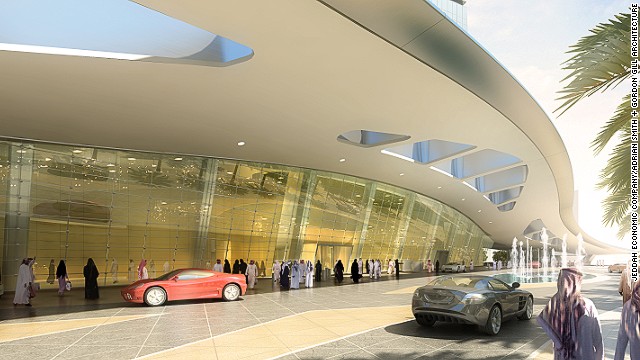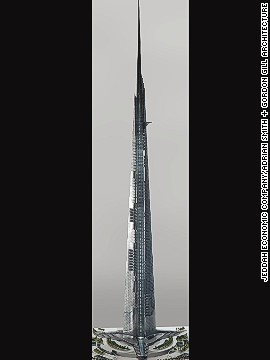

 Dubai -- long champion of all things biggest, longest and most expensive -- will soon have some competition from neighboring Saudi Arabia.
Dubai -- long champion of all things biggest, longest and most expensive -- will soon have some competition from neighboring Saudi Arabia.
Dubai's iconic Burj Khalifa -- the world's tallest building -- could be stripped of its Guinness
title if Saudi Arabia succeeds in its plans to construct the even
larger Kingdom Tower in Jeddah -- a prospect looking more likely as work
begins next week, according to Construction Weekly.
Consultants Advanced Construction Technology Services
(ACTS) have recently announced testing materials to build the
3,280-feet (one kilometer) skyscraper (the Burj Khalifa, by comparison,
stands at a meeker 2,716-feet, or 827 meters).
The Kingdom Tower,
estimated to cost $1.23 billion, would have 200 floors and overlook the
Red Sea. Building it will require about 5.7 million square-feet of
concrete, and 80,000 tons of steel, according to the Saudi Gazette.
Building a structure that
tall, particularly on the coast, where salt water could potentially
damage it, is no easy feat. The foundations, which will be 200 feet (60
meters) deep, need to be able to withstand the saltwater of the nearby
ocean. As a result, ACTS will test the strength of different concretes.
Wind load is another issue for buildings of this magnitude. To counter this challenge, the tower will change shape regularly.
"Because it changes shape
every few floors, the wind loads go round the building and won't be as
extreme as on a really solid block," Gordon Gill explained to Construction Weekly. Gill is a partner at Adrian Smith + Gordon Gill Architecture, the design architects for the project.
Delivering the concrete
to higher floors will also be a challenge. Possibly, engineers could use
similar methods to those employed when building the Burj Khalifa; six
million cubic feet of concrete were pushed through a single pump,
usually at night to ensure the temperatures were low enough to ensure it
would set.
Though ambitious, building the Kingdom Tower should be feasible, according to Dr. Sang Dae Kim, the director of the Council on Tall Buildings.
"At this point in time
we can build a tower that is one kilometer, maybe two kilometers. Any
higher than that and we will have to do a lot of homework," he told
Construction Weekly.
No comments:
Post a Comment